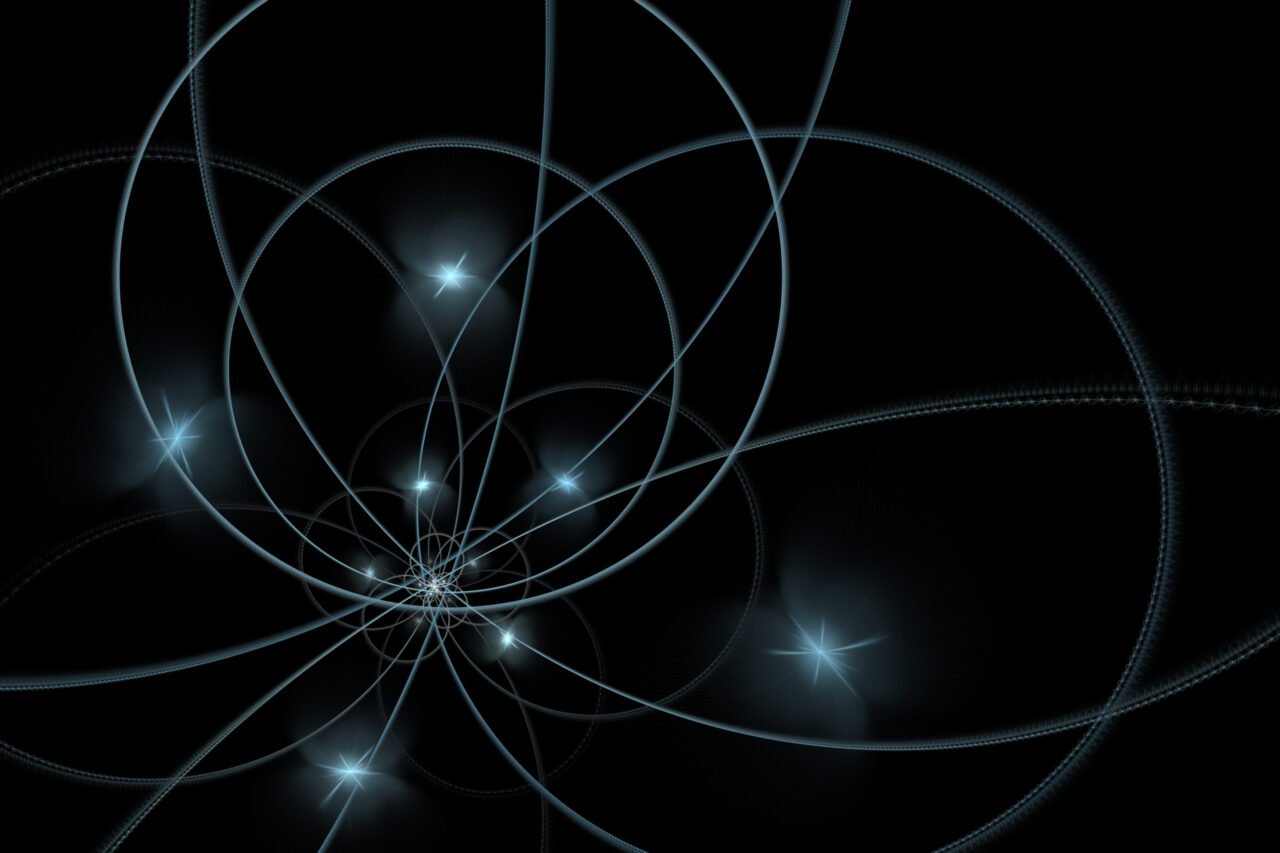Science
Physicists Revive 1867 Knot Theory to Solve Matter-Antimatter Puzzle

A team of physicists from Japan has revived a theory from **1867**, proposing a fresh perspective on the longstanding mystery surrounding matter and antimatter. Writing in the journal **Physical Review Letters**, the researchers interpret the concept of atoms as “knots” in a hypothetical medium known as the aether, which was once a cornerstone of scientific thought. While they do not advocate for the existence of aether itself, their findings suggest that cosmic knots of energy may have played a crucial role in the formation of the matter we observe today.
All matter in the universe has a counterpart—antimatter. These particle pairs should have annihilated each other after the **Big Bang**, leaving only radiation. Yet, a slight imbalance favoring matter has resulted in the universe as we know it. This phenomenon, referred to as the matter-antimatter asymmetry, has puzzled scientists for decades. Various theories have attempted to explain this imbalance through mechanisms such as charge-parity (CP) violation. However, none have provided a definitive answer.
The revival of the knot theory links back to **William Thomson**, known as **Lord Kelvin**, who conceptualized atoms as “mathematically defined knots.” The current research extends this idea by applying it to wave packets of energy in the early universe. Following the Big Bang, phase transitions created cracks in space, leading to “thread-like defects” that formed cosmic knots. These knots are theorized to have become entangled as spacetime expanded and contracted.
As these knots untangled through quantum tunneling—a phenomenon recognized in this year’s Nobel-winning physics—particles could pass through barriers in the quantum realm. The researchers propose that if these knots displayed a bias towards matter, their unraveling might account for the existing imbalance between matter and antimatter.
Yu Hamada, a particle physicist at **Keio University**, co-authored the study and emphasized the implications of their findings. “This collapse produces a lot of particles,” he stated. Included among these particles are a type of neutrino, which is electrically neutral and nearly massless. Their decay may naturally generate the observed imbalance. Hamada elaborated, “Heavy neutrinos decay into lighter particles, such as electrons and photons, creating a secondary cascade that reheats the universe.”
The researchers liken neutrinos to the “parents” of all matter, with the knots serving as “grandparents.” This novel approach to understanding the matter-antimatter problem is still in its theoretical stage. Nevertheless, calculations indicate that collapsing cosmic knots should leave behind detectable strings—structures that gravitational wave observatories like **LIGO** and **LISA** may be able to observe.
If confirmed, the implications of this research could ignite interest among physicists exploring string theory and the fundamental nature of our universe. As the scientists continue their investigations, the quest to unravel the mysteries of matter and antimatter remains an exciting frontier in modern physics.
-

 Science2 months ago
Science2 months agoInventor Achieves Breakthrough with 2 Billion FPS Laser Video
-

 Health2 months ago
Health2 months agoCommunity Unites for 7th Annual Into the Light Walk for Mental Health
-

 Top Stories2 months ago
Top Stories2 months agoCharlie Sheen’s New Romance: ‘Glowing’ with Younger Partner
-

 Entertainment2 months ago
Entertainment2 months agoDua Lipa Aces GCSE Spanish, Sparks Super Bowl Buzz with Fans
-

 Health2 months ago
Health2 months agoCurium Group, PeptiDream, and PDRadiopharma Launch Key Cancer Trial
-

 Top Stories2 months ago
Top Stories2 months agoFormer Mozilla CMO Launches AI-Driven Cannabis Cocktail Brand Fast
-

 Entertainment2 months ago
Entertainment2 months agoMother Fights to Reunite with Children After Kidnapping in New Drama
-

 World2 months ago
World2 months agoR&B Icon D’Angelo Dies at 51, Leaving Lasting Legacy
-

 World2 months ago
World2 months agoIsrael Reopens Rafah Crossing After Hostage Remains Returned
-

 Business2 months ago
Business2 months agoTyler Technologies Set to Reveal Q3 Earnings on October 22
-

 Health2 months ago
Health2 months agoNorth Carolina’s Biotech Boom: Billions in New Investments
-

 Health2 months ago
Health2 months agoYouTube Launches New Mental Health Tools for Teen Users









